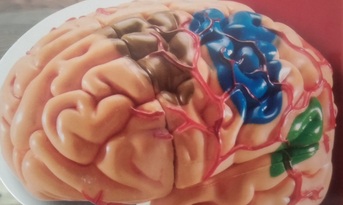|
Being a teacher is one of the most important careers of all. It is a more demanding profession than most people think, but can be very rewarding (as I experienced during my 18 years as a full-time teacher). Here are some of the things I learned as a teacher with respect to the profession:
2 Comments
Math can sometimes be frustrating to teach. Some lessons may be easy and some more challenging. However, teachers can always do things that will help each lesson/unit function smoothly. Here are nine tips that can help teachers achieve their math goals each year.
using is good enough to help your students learn over the course of the year. There is no single program that is perfect. Take notes regarding what works and what does not work for you with respect to your classroom dynamic. Each year your students will be functioning at different levels, so you need to adjust your plans and approach accordingly. 3. Don’t supplement too much You have committed to sufficient time for mathematics instruction each day of the week. Your subject matter will be adequately discussed, practiced, and learned. 4. It is not a race Avoid rushing through lessons and units in order to reach an arbitrary goal. Focus on your students becoming confident and proficient with each concept that is covered. Some lessons may take two class periods to complete. It’s okay. Not everything is learned with ease. 5. Be patient If one person or the entire class is struggling, make sure to use all available resources to help them comprehend. 6. Informal Assessment is more important than you might think Keep notes regarding what students are grasping concepts easily and what appears to be a challenge on a weekly or even daily basis. 7. Use your best judgement regarding activities related to lessons You may have several great ideas, but use them based on areas in which your students need remediation and/or enrichment. 8. It is very important to expose your students to the proper math vocabulary- You and your students should always use them. Encourage them to use this vocabulary in their Math Journal as well (if they have Math Journals). If you don't use Math Journals, you may want to start. It is a great way for students to record their thought process and be able to use that journal later as a reference tool if necessary. 9. Allow for students to have opportunities to create, explore, and problem solve I taught 4th grade for 11 years. Each year, the kids enjoyed Fridays because I designated that day as Math Game Day. Students were able to use the entire math period to work alone, with a partner or in a small group (3 people was my limit). The rules were as follows: Games must reinforce a mathematical skill, games played could be ones that I taught them or a game from the math program we used, and they had the option of creating a unique math game but had to present it to the class. How do you cultivate math thoughts in your classroom? We have all done it at some point in our lives. We have waited until the the night before to begin studying for an exam. Then spent all night and into the wee hours of the next morning trying to cram as much information into our brains as possible.
Research has shown that studying in chunks (experts call it the Spacing effect or the Distributed Practice Effect) is more effective than studying for hours on end (“cramming”) the night before. Research has also shown that sacrificing sleep for study time, be it cramming for a test or plodding through a load of homework, is fundamentally counterproductive. Regardless of how much a student studies if sufficient sleep is being sacrificed for study time, he or she will likely have more academic difficulties (rather than fewer) the following day. Here is something to consider. If it is the night before the test/exam and you are organizing notes, calling a classmate asking if they will scan their notes and email them to you, and reading the text/handouts for the first time, you are not studying. Below are three links to articles related to the affect of cramming versus consistent studying, the importance of sleeping, and the connection between ample sleep, learning and memory. Sleep, Learning and Memory http://bit.ly/Q810RH Cramming May Not Be Best Practice http://wapo.st/1BdoR6J Sleep Loss Affects High Schoolers http://bit.ly/1u0hEpD |
AuthorRandy Sally Archives
June 2023
Categories
All
|




 RSS Feed
RSS Feed
